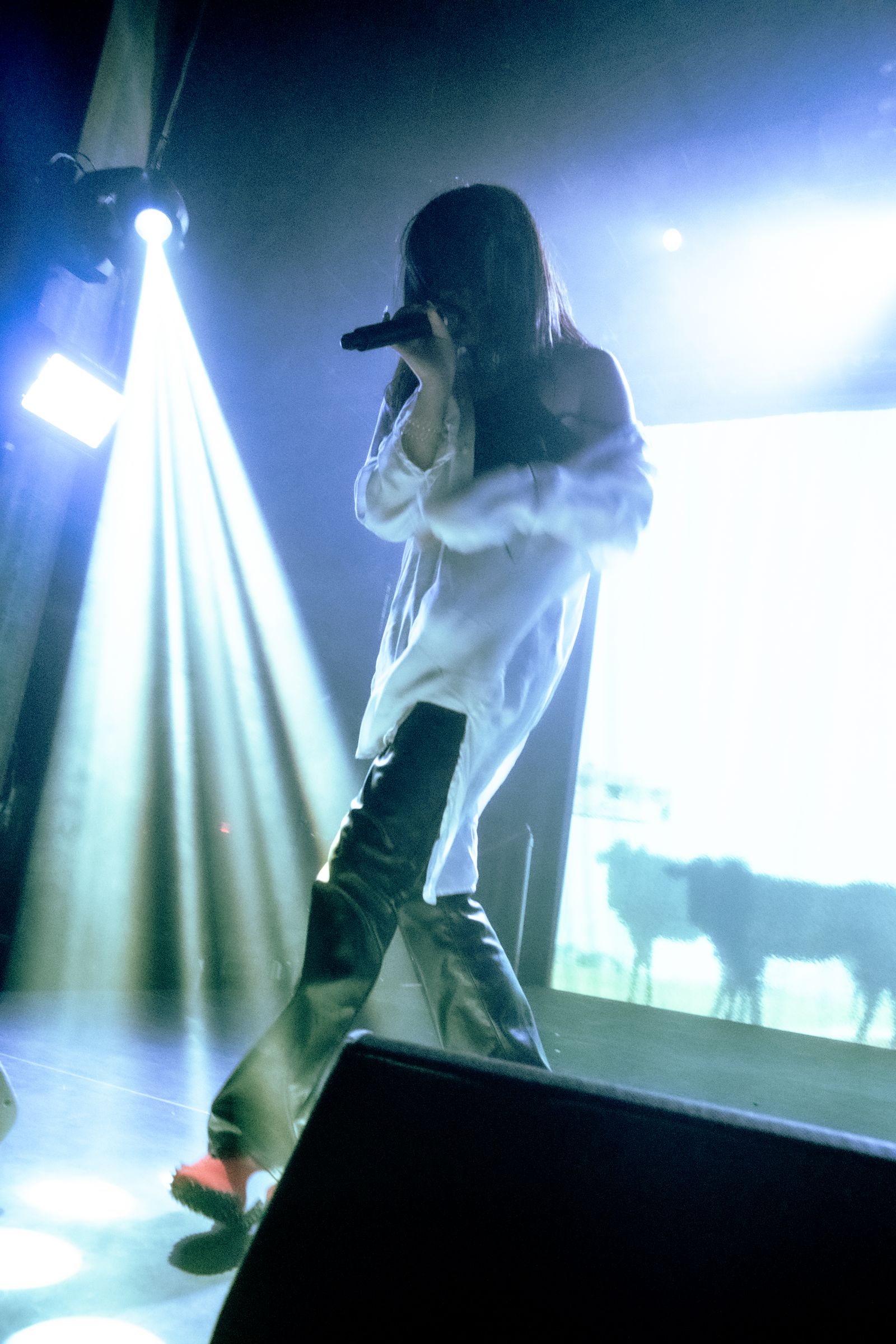As the sun set on Knockdown Center, in Queens, New York, its steadily swelling crowd couldn’t decide if it was ready to dance yet. It was just the start of Night Out, Pitchfork and them’s Pride Month celebration, and, before long, a good portion of the venue’s 50,000 square feet will be covered in sludge and dust from the bottoms of dirty boots, soundtracked by pulsant electronics. But, for now, it’s time to settle in: Send some texts to friends en route; tip your bartender; shuffle modestly to the turgent rhythms. Judging from the outfits, it genuinely felt like people from every corner of the city pulled up for the show. I see leotards and tank tops cropped at the nipple and knee-high platforms, but also tabi flats and Kangol hats and, uh, a Carson Wentz Eagles jersey? Pretty random, but we’ll take it.
Slowly but surely, as the audience began to fill out, people realized the DJ was really on one. Ickarus, a fixture of New York’s Bushwig drag collective, flew through Hot 100 belters (“365,” “Pink Pony Club,” “Body”), splicing in misty synths, open hats, and sweaty drums with finesse. A mix of “NUEVAYoL” and Benny Bennasi’s “Satisfaction” got things even more heated. To close their set, Ickarus ushered in a mini–drag show with La Zavaleta, a queen with bandages wrapped around her head and torso like After Hours–era Weeknd (until she theatrically peeled them off, of course). After trotting and thrusting to Kim Petras onstage, La Zavaleta christened the celebration with some kind words: “Please, please, please respect one another,” she implored. “Love each other. And not just for Pride! Every single month.”
Knockdown Center was bubbling by now, its open-aired interior rife with tipsy, bass-hungry revelers. Of all the acts, though, Sudanese American vocalist Dua Saleh was the most subdued, swaying between heart-fluttering falsettos and cunning raps. “Does anybody love hip-hop?” Saleh asked before ripping into the subterranean lurch of “cat scratch.” Clad in a black, flowy dress with chains swinging around their waist, Dua Saleh’s whispery cadence gave her an enchanting presence over the room.
The British rapper skaiwater turned things up with my favorite set of the night. They stood bare-chested onstage for the bulk of their performance, yelling into the mic like a rottweiler. Their music is at its most jagged and turbulent at live shows: muddied bass turns grotesque; chipmunked samples become ear-piercing; and the Auto-Tuned hysteria is incoherent. It reminds me of reading about old My Bloody Valentine shows when they’d perform at obscene volumes, droning into tinnitus-invoking oblivion for hours on end. Somehow, there’s still beauty to be found in all that distortion. “She wanna fuck my patna!” skai yelps on “allah,” and all I can do is shake my head and smile.
For the final act, hyperpop lodestar underscores held the tightest grasp on the crowd. The energy had been building up to a fever pitch and the audience was fully engaged. I’ve never been to a concert with visuals as interactive as hers, starting with the lyrics to “Night Out” syncing word-by-word with the melodies fizzling out of her Auto-Tuned microphone. With each pulse of bass and digitized clap, the onstage projection and floodlights strobed, convulsed, and inverted their colors. Underscores frolicked to the squelching electronica of “Poplife” and the sugary ecstasy of “Girls and boys” like she was modeling in a L’Oreal commercial, her hair flowing behind her and everything. The bodies in the crowd never once stopped jumping along with her.
As underscores performed her new single, “Music,” she professed her love for the artform by yelping, “It’s everything to me!” as the phrase was flashed to the crowd from behind her. Not long before, some brolic, long-haired figure came from out of nowhere behind me to shove their way into the sea of bobbing heads. Clearly, this means everything to them, too.
